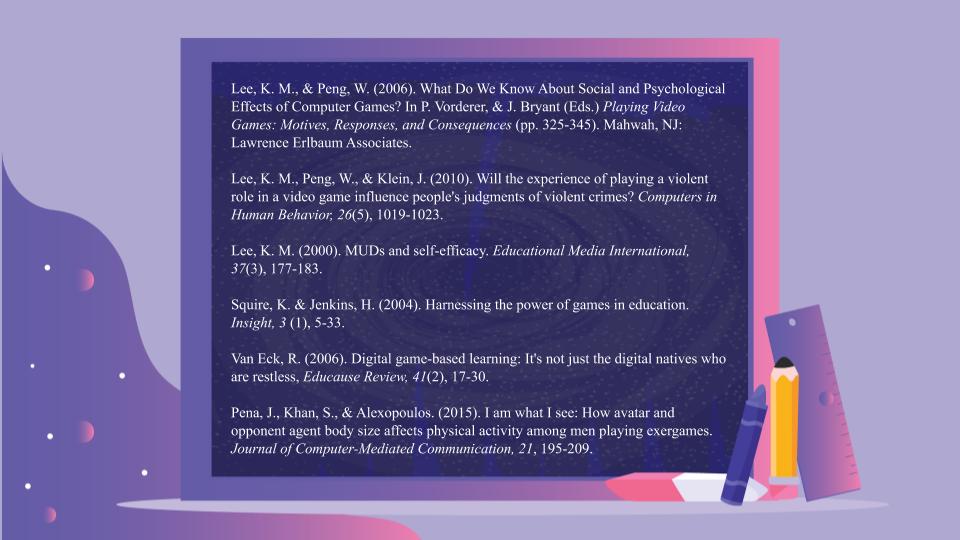Listen to my presentation here!
Transcript:
Hi everyone, Bella here. Thanks for all the feedback from two weeks ago. I refined my concept base on it and more research.
So maybe at this stage, it is too ambitious to set prisoners as the target users. As it will be difficult to study the target and test my hypothesis. Therefore, I decided to choose another segment, children. As I mentioned before, playing educational and non-violent computer games in moderation has positive impacts on people such as developing cognitive skills, inductive discovery and problem-solving skills through trial-and-error learning and. Empirical evidence shows the hypothesis that cognitive skills learned in playing computer games can be transferable to other tasks. Also, a Japanese study shows that children play computer games have better sociability as compared to nonplayers. One of the popular concepts claimed that children who play computer games are more isolated, yet research shows that there is no correlation between the playing game and the popularity of children in school. In addition, computer games were used as tools for psychotherapy sessions which were considered as more effective than traditional methods as computer games provide a common ground between the therapist and patients. It provides better assistance in behavioral observation. All in all, the educational impact of computer games is achieved with the immersion effect that allows the players to immerse themselves deeply in the virtual learning environment with the concentration on the goal. The players would pay more attention to learning materials embedded in the game. As compared to other media, such as books, movies, and theater, the computer game can provide a stronger sense of presence because of its interactivity.
Therefore, base on the studies, my hypothesis for my final year project is that: daily interaction with voice-based avatar games might be able to improve children’s social behavior. Let me break it down. First, I would like to explore the voice interface as natural language is a more intuitive way for humans to interact with the computer. The voiced game will be enabled by text to speech technology. Voice interface makes it possible to tailor the voice character to the user. Based on the similarity attraction theory people find the voice that is similar to their personality more credible. Hence, the voice interface has a lot of potential in persuasion and teaching. Secondly, an avatar is the digital representation of the user. According to the Proteus Effect, people have the tendency to be affected by the characteristics of their avatar, and their behavior shifts in accordance with their digital representatives. So we might be able to use a positive avatar to reinforce positive behaviors. Lastly, this game might be the common ground between parents, teachers, and children to assist teaching and make learning more interesting.
To conclude, this will be a research-intensive project. The process includes research, design, prototyping, and experiments with the target group. Then, the research result will be used to develop digital education tools for children. The end product will be showcased at the final year project show. If the educational game works on improving children’s social behavior. Then, with the right adjustment, it might have the potential to teach more people in the future, such as the prisoners.
That’s all for my update. What do you guys think? Please leave your comments below. Thank you!
References


Bella, the fact that you’re focusing attention on developing a voice-based interactive game experience is a good start. What are some examples of projects that you’ve encountered in your research? What are some games for children using voice avatars that you can use as an example?
Also, like the challenge with interacting with prison populations, you will have challenges finding groups of students who you can also interact with. How would you go about even testing your prototype with children? Which age group are you focusing on? You need to focus on specific age group because each is very different in terms of their language capability and cognition.
Lastly, in your project, what are the assumptions you are making that you want to test?